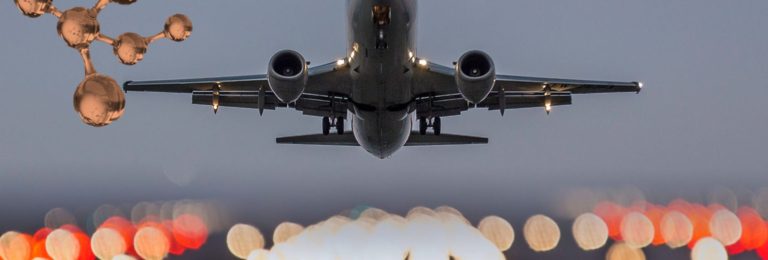
Hailed by the aviation industry and ministers as a demonstration of the potential to significantly cut net carbon emissions from flying, flight VS100 was operated under special dispensation with no paying passengers, and used fuel imported from the US and EU made mostly from tallow and other waste products.
Transport secretary, Mark Harper, who was one of those on board the historic flight, said: “Today’s 100% SAF-powered flight shows how we can decarbonise transport both now, and in the future, cutting lifecycle emissions by 70% and inspiring the next generation of solutions.”
With demand for SAF set to reach 194 million tonnes by 2050, the sustainable fuel flight was also hailed as a major step forward by GlobalData, a leading data and analytics company with Caroline Midgley, Director of Biofuels and Chemicals Research offering her view on the current status of this new technology.
“This is a major step forward for both the company and the wider industry as Virgin joins a growing number of airlines that have committed to decarbonise aviation through the use of low-carbon fuel,” Caroline commented. “Many airlines have ambitious targets, typically looking to replace 10% of their fossil kerosene with SAF by 2030 – in line with some national mandates.
“The SAF market is a relatively new, but rapidly growing, industry. Based on the latest policy developments within Europe and the US, which represent the vast majority of the SAF market, GlobalData projects that global SAF demand is set to reach 194 million tonnes in 2050. This represents 30% of the total projected aviation fuel use in 2050.”
Whether this demand can be successfully met will depend on the world’s leading government’s ability to follow through on their ambitions, and so airline targets will be a key driver of SAF volume in the near term.
Emerging feedstocks and technologies
“The American Society for Testing and Materials (ASTM) has approved nine technology pathways to produce SAF, with others under consideration. Hydro-processed esters and fatty acids (HEFA) fuel is by far the most developed technology with large plants currently in operation and more in the pipeline,” Caroline notes. “Alcohol-to-jet (ATJ) fuel is the second largest technology, by announced capacity, which has increased significantly over the last 12 months.
“While hydrotreatment will remain the dominant route for SAF production in the near term, a wider range of feedstocks and technologies will be deployed moving forward.
“The International Air Transport Association (IATA), which represents the majority of the world’s airlines, has committed to making aviation carbon neutral by 2050. This is a major step forward in terms of tackling climate change and the development of SAFs has a key role to play in helping the industry achieve this aim.”
The only viable solution
Rishi Sunak described the flight as “a major milestone towards making air travel more environmentally friendly and decarbonising our skies”.
Virgin Atlantic said the 100% sustainably fuelled flight would show SAF to be a safe replacement for kerosene jet fuel with Founder and ~President, Sir Richard Branson, who was also onboard, saying: “The world will always assume something can’t be done, until you do it.”
Speaking of SAF as a critical route to reducing flight emissions, Shai Weiss, the Virgin Atlantic chief executive, said: “SAF is the only viable solution for decarbonising long-haul aviation. It’s taken radical collaboration to get here and we’re proud to have reached this important milestone, but we need to push further.
But, with the availability of the fuel now less than one-thousandth of the total volume of jet fuel used worldwide Shai continued: “There’s simply not enough SAF and it’s clear that in order to reach production at scale, we need to see significantly more investment. This will only happen when regulatory certainty and price support mechanisms, backed by government, are in place. Flight 100 proves that if you make it, we’ll fly it.”
Fly less
Not everyone embraced the flight with such enthusiasm, however, pouring scorn on the DfT announcing that SAF would “make guilt-free flying a reality”.
Cait Hewitt, the policy director of the Aviation Environment Federation, said: “The idea that this flight somehow gets us closer to guilt-free flying is a joke.”
She said SAF production would be very hard to scale up sustainably, adding: “Hopefully, we’ll have better technological solutions in future but, for now, the only way to cut CO2 from aviation is to fly less.”